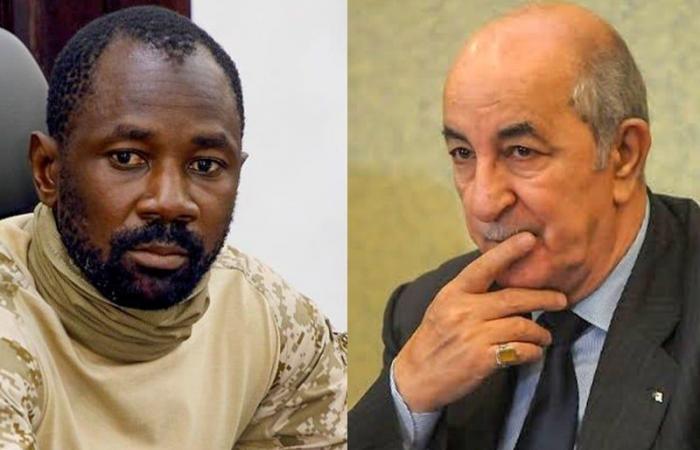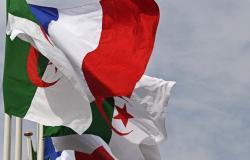L‘Algeria is located in the heart ofa controversy concerning serious accusations of support for terrorism in Mali. The Malian authorities in placedid not mince their words in reacting to Algerian interference in the internal affairs of Mali. But instead of focusing on these accusations and recognizingrecognize his mistakes,‘Algeria is looking, again and again, towards Morocco.
Mali has repeatedly denounced Algerian interference in its internal affairs in addition to terrorist threats coming from this neighboring country which, among other things, leaves porous borders in the north of Mali to allow terrorists threatening the stability of Bamako to enter. take refuge in Algeria.
According to an official press release from the Ministry of Foreign Affairs and International Cooperation of Mali, dated January 1, 2025, the Malian government blames Algeria by accusing it of supporting terrorist groups which destabilize the Sahel, in particular those which act in Mali.
This press release refers to a previous document, press release 064 of January 25, 2024, which already denounced this “ proximity and complicity » of Algeria with these groups, affirming that Algeria would have “offered them room and board” while controlling their criminal actions against Malian and Sahel civilians.
The accusations are not limited to a simple diplomatic dispute, but are part of a broader context of geopolitical tensions, where Algeria is increasingly perceived as an actor who sows discord in the region, not only in the Maghreb , but also in the Sahel.
The destabilizing game of‘Algeria in the Sahel nno longer escapes the countries concerned
Attempts at separatism in Morocco are becoming more obvious to many neighboring countries which now see the influence of Algerian “diplomacy”. Attempts to destabilize Algeria now go beyond Morocco and concern the entire Maghreb and the Sahel since this masquerade of a Maghreb group without Morocco, which was to oppose the Arab Maghreb Union (UMA).
Mauritania was the first country to see through Algeria’s game by declining its invitation to this meeting. Currently, the two countries are entering a cold crisis because of the principled position of Nouakchott which refuses to give in to Algerian pressure and wants to preserve its relations with Morocco.
In addition, Libya, which participated in the meeting, quickly changed its mind and more recently Tripoli was able to see the Algerian actions carried out against its interests since the resumption of the inter-Libyan dialogue in Morocco at the end of December.
Mali, too, suffered from Algeria’s destabilizing game and did not hesitate to denounce it before the United Nations while withdrawing from the 2015 Algiers agreements. Algeria also maintains complicated relations with its another neighbor Niger. The only country which currently seems to have succumbed to the Algerian “charm” is Tunisia, which has become a vassal state of the regime of Abdelmadjid Tebboune.
In search of‘a scapegoat
While all countries in the region now see Algeria as a central player in destabilization, the Algerian media do not seem to see this and prefer to attack the Malian authorities and involve Morocco, as usual. Some, like the Algerian journalist, Abdou Semmar, even seek to accuse the United Arab Emirates and Israel in this new quarrel in Algeria which, we recall, has been in crisis with Morocco for several years, for more than two years with Spain and France, and more recently with Mali and Mauritania.
The climate in the Sahel is seen as being “aggravated and made complex by interference from foreign actors”, with particular mention of Morocco. Algeria, according to the Algerian media TSA, is convinced that “the hand of Morocco” is visible in this “emboldenment” Malian authorities, who now seem to be confronting Algeria on several fronts.
This situation highlights a complex and recurring dynamic in Algerian foreign policy, where Morocco is accused by the military regime in place of all the ills that strike Algeria.
Why do we accuse Morocco ?
Yet in this crisis between Mali and Algeria, the Malian accusations echo previous statements, notably those of the Algerian Minister of Foreign Affairs, Ahmed Attaf, who recently affirmed that Algeria considered the military solution in the region as « impossible ».
He also refused to allow political movements, signatories of the 2015 Algiers peace agreement, to be assimilated to terrorist groups, a point which has deeply divided regional actors, including the Malian government, which denounced the Algeria’s inaction and complicity in supporting terrorist groups.
The Malian transitional government, “arising from the coup” as the Algerian press wishes to point out, believes that “the undeniable successes” of the Malian army and “the pressure exerted on terrorist groups supported by Algeria has difficulty getting through to certain Algerian officials, nostalgic for a bygone past.”
The transitional government sees in Ahmed Attaf’s remarks a “new interference” of Algeria from which, he says, “Mali is neither asking nor taking lessons”.
The Algerian media do not lack words to criticize Mali by describing Bamako’s reaction as“skid” and “red line crossed ». When Bamako invited Algiers to focus more on resolving its internal conflicts, TSA saw Morocco’s hand in this.
The Malian press release in fact invited Algeria to “refocus its energy on resolving its own internal crises and contradictions, including the Kabyle question”. But instead of accepting the criticism, the Algerian media considered that it would be a matter of“a serious deviation where we clearly see the hand of Morocco in the drafting of this press release and which will not remain without consequences on relations between Algeria and Mali.”






